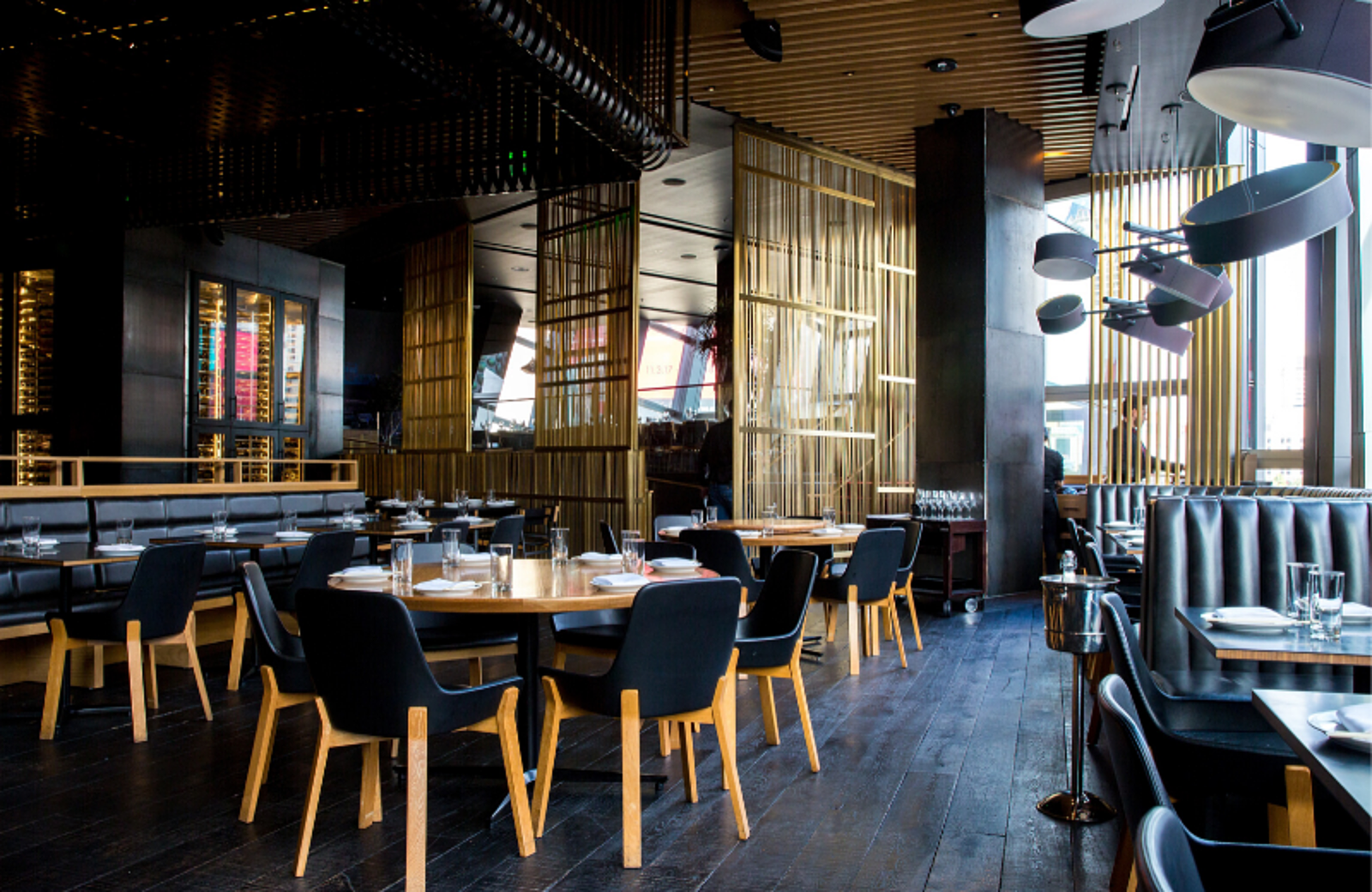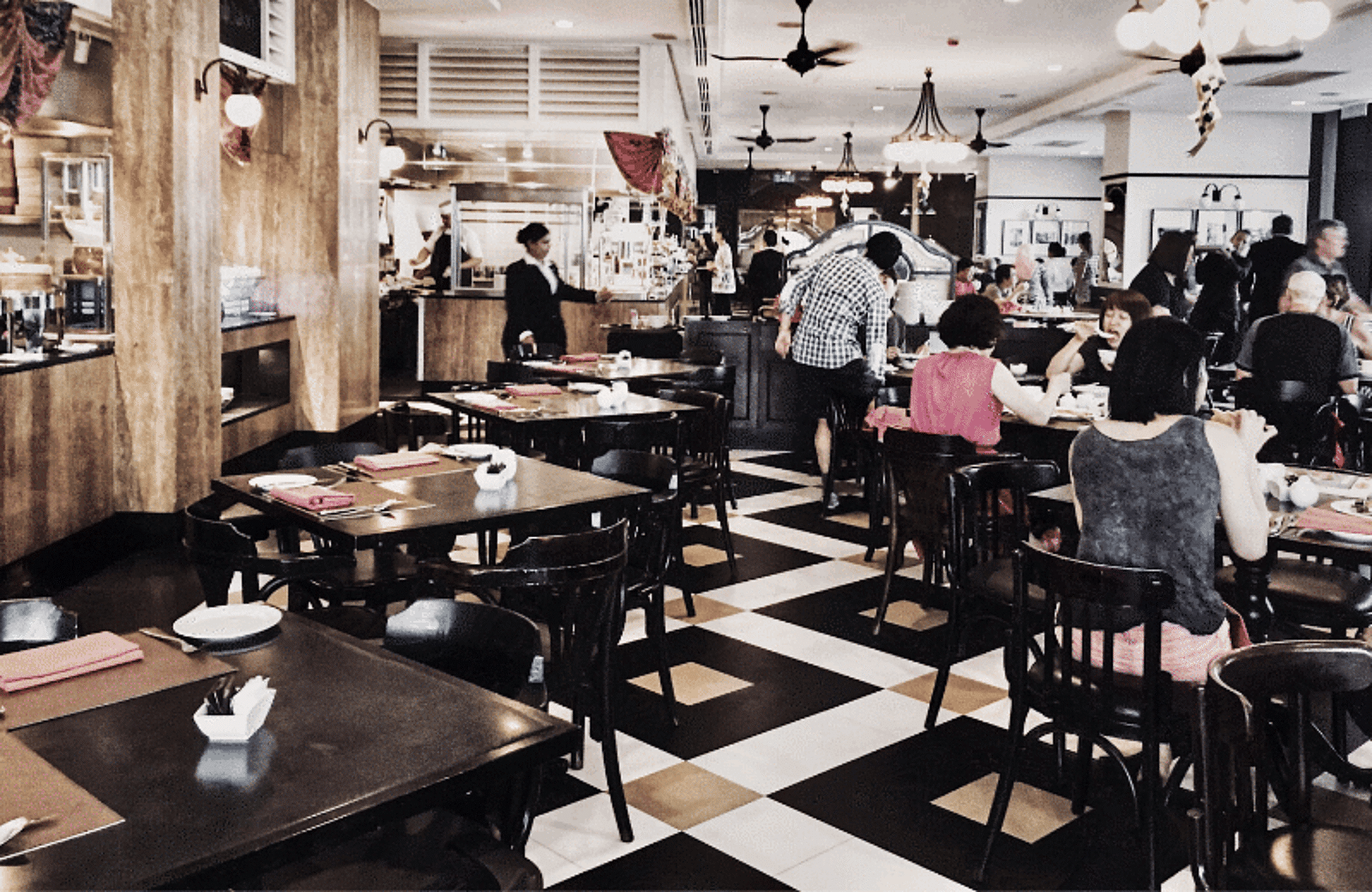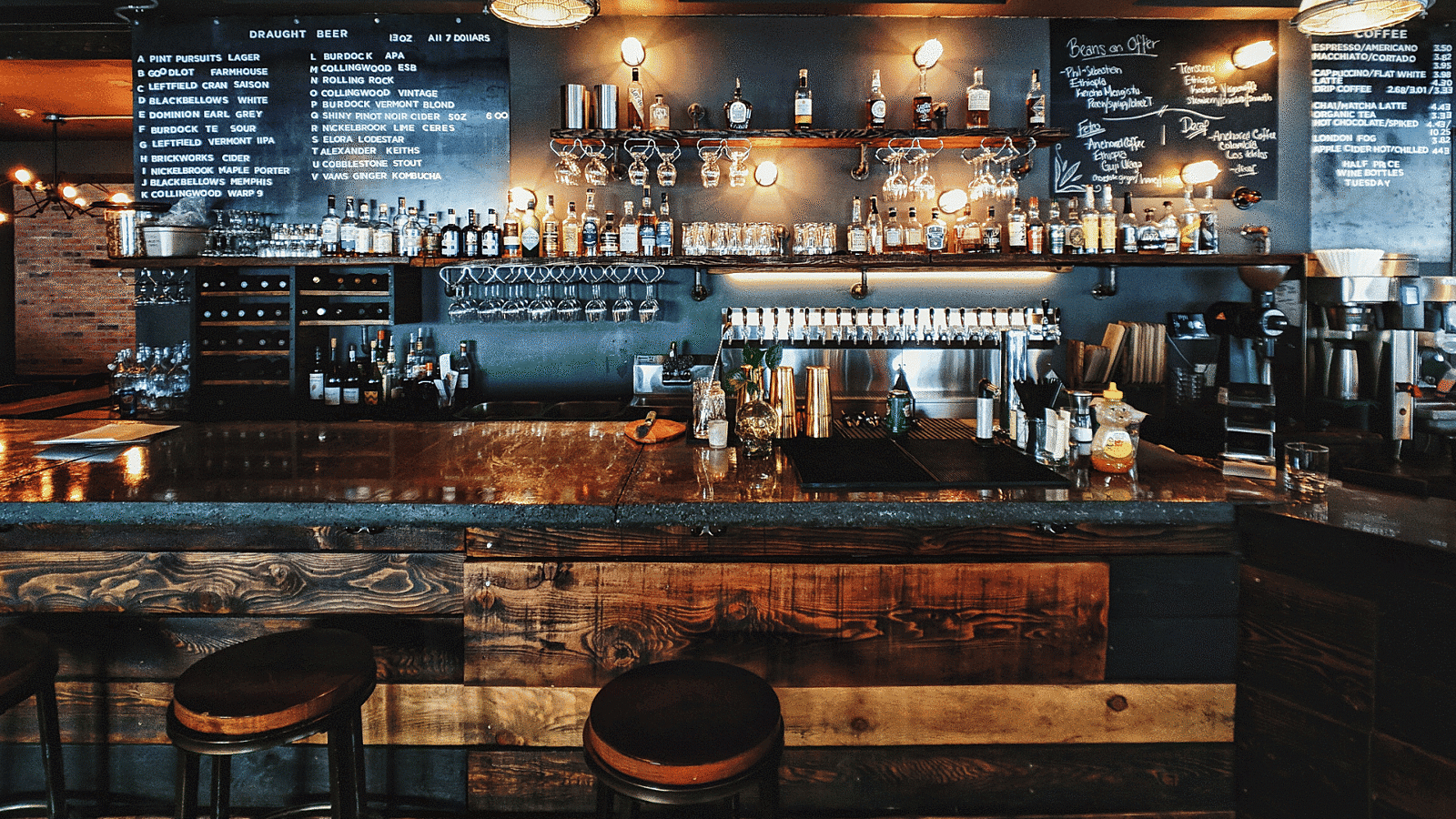
How to Value a Restaurant Business
Learn how to value a restaurant business, including two different calculation methods and the many factors that can impact your estimate.

AJ BeltisAuthor
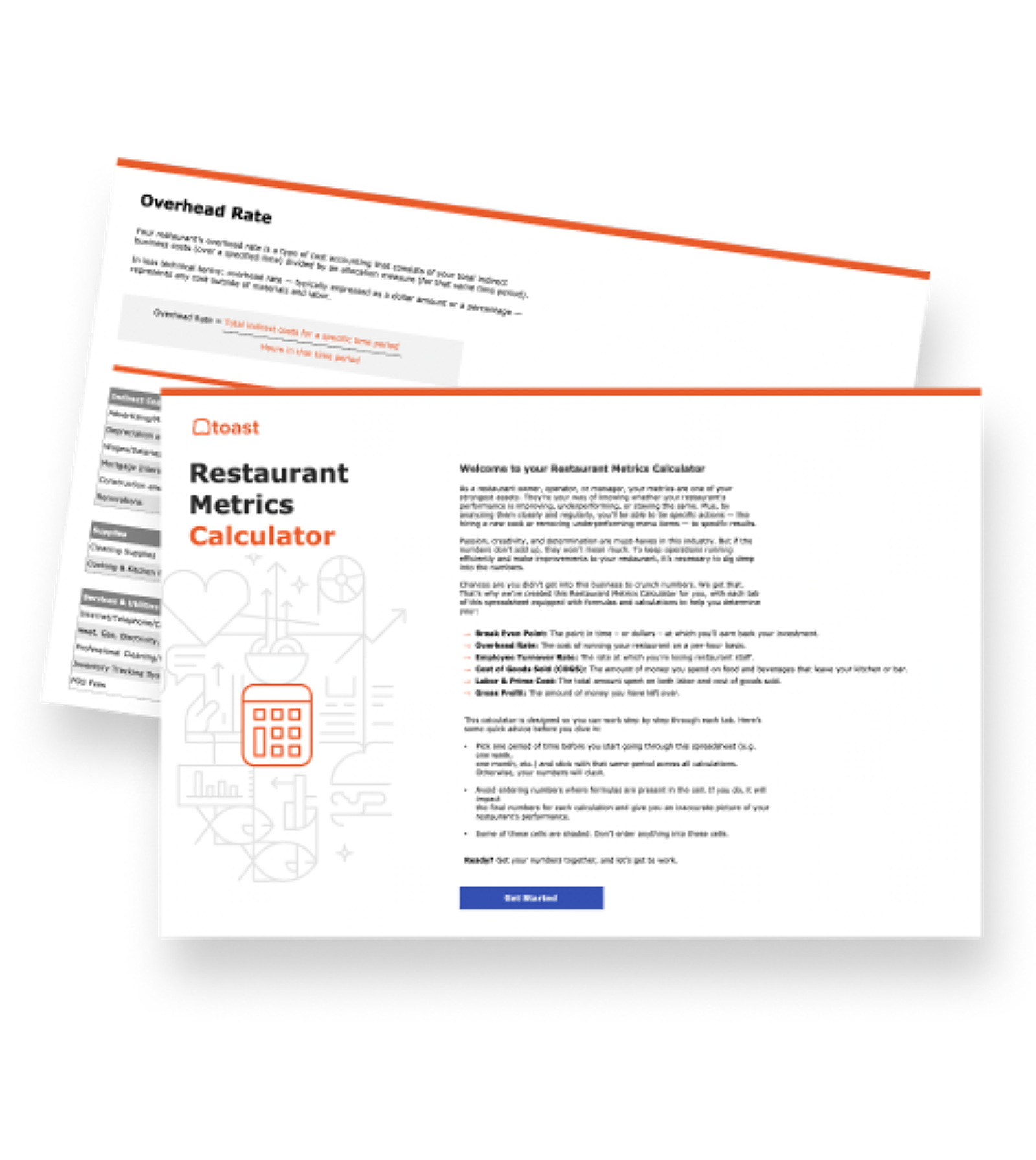
Whether you're putting your restaurant on the market tomorrow or you plan on owning it until the day you die, it's always important to know how much your restaurant is actually worth.
Valuing a restaurant business is an important step in the process of buying or selling a restaurant, or buying or selling equity in a restaurant. If you don’t know how much the business is currently worth, you won’t know if you’re getting a worthwhile deal.
We’ll get into how to value a restaurant for sale, including an explanation of two different methods of business valuation as well as the factors that contribute to a business’s valuation.
As always when making major financial decisions, be sure to consult with an accountant, business broker, or legal professional as you explore your options.
Restaurant Metrics Calculator

When to Value Your Restaurant Business
There are a range of scenarios that contribute to a restaurant owner needing to be able to know the value of their restaurant.
Selling a Restaurant or Restaurant Equity
There are many external factors that can contribute to the decision to sell a restaurant. Maybe you’re reaching retirement age, or you’ve experienced an injury and need to get into a less physically demanding industry. Maybe inflation has just made it too challenging to bring in the cash flow needed to keep your business afloat while keeping yourself and your employees paid.
Or, instead of selling, some restaurant owners feeling financial pressure may offer up a share of ownership (or equity) to a new business partner who can bring in more capital and new skills.
And sometimes, the opportunity to sell your restaurant comes without you planning for it: An investor, real estate developer, or entrepreneur may approach you with an offer for your business.
For any of these situations to shake out in your favor, it's imperative to understand exactly what your restaurant is worth.
Buying a Restaurant or Restaurant Equity
Though economic conditions are still challenging, restaurants have held their appeal as exciting business investments.
For some people opening restaurants today, it’s simply a passion project that they feel called to do.
Others simply have the capital and the years of experience necessary to manage it, plus a winning, innovative restaurant concept and business plan that’s viable in spite of the economy. For example, Chef Anthony Strong went from a standard full-service restaurant, to a COVID-era van-based restaurant, to the restaurant-slash-retail store he successfully runs today. He explained his current model to the New York Times: “Our tiny menu is efficient and minimizes waste. Our product, pasta, is affordable enough to keep profit margins sufficient even during inflationary periods. Most important, guests order at the front door with the host before being pointed to their (fully set) table, which eliminates 15 minutes of profit-killing dead time at the beginning of each meal.”
Despite the hurdles, restaurants continue to change hands, and new, innovative restaurants continue to open all around the country and the world.
For those wanting to dip a toe into restaurant ownership without jumping in with both feet, buying equity in a successful restaurant is also an approach to consider.
But for any of the above opportunities to be truly fruitful and viable, buyers need to know the valuation of the business they’re looking to buy or invest in.
Applying for a Loan
Sometimes, a struggling restaurant can make strategic changes that lead to greater success with the help of a business loan.
When applying for certain types of loans, including certain types of SBA loans, restaurant businesses may need to be valued before the loan is approved.
To learn more about restaurant loans, read The Complete Guide to Restaurant Financing and Loans, and consult with a legal professional and accountant to take you through the process.
How to Value a Restaurant: 2 Valuation Methods to Consider
Here are two of the most common business valuation methods that restaurateurs can use to find the value of their business. As mentioned above, always work with an accountant or a third-party valuation service to make sure you have the numbers right before making any major moves.
1) Valuation Multiples Method: Selling a Functioning Restaurant
This approach takes two important financial metrics, SDE and revenue, and multiplies them by their respective industry benchmark multipliers — we’ll explain it all below. You’ll end up with two different numbers, and can use the two as a ballpark range for the value of your restaurant.
Step 1: SDE
This valuation approach looks at how much income a business could generate for its new owners based on the current earnings generated by the business.
According to Investopedia, in order to use this method, you need to know the restaurant’s SDE, which is the Seller’s Discretionary Earnings. This metric is equivalent to a business’s yearly net income — which is a business’s pre-tax income after operating costs are deducted. Dive into your metrics, your profit and loss statement, and other financial statements to find this information.
You’ll also need to know your industry’s benchmark valuation multipliers — which help compare the business in question to other similar businesses in the restaurant industry. Investopedia reports that restaurant valuation SDE multipliers tend to sit between 1 and 3, and are often on the lower scale due to the industry’s volatility.
Talk to your accountant or commercial real estate agent to find out the current restaurant industry valuation multiplier for your type of business.
Once you have the above information, you can proceed with the estimated valuation calculation. Follow along with this formula and example figures:
[Restaurant SDE] x [industry benchmark valuation SDE multiplier] = the restaurant’s estimated value
Restaurant SDE: $150,000
Benchmark valuation SDE multiplier: 1.5
$150,000 x 1.5 = $225,000
Step 2: Revenue
Similar to the above method, this valuation approach takes a key financial metric from the restaurant and multiplies it by an industry benchmark valuation multiplier.
But instead of SDE, this approach uses total annual revenue — and the industry benchmark multiplier for revenue is different from the one for SDE. Talk to your accountant or commercial real estate agent to find out the current revenue multiplier for your type of business.
Follow along with this formula and example figures:
[Restaurant revenue] x [industry benchmark revenue valuation multiplier] = the restaurant’s estimated value
Restaurant Revenue: $450,000
Benchmark valuation revenue multiplier: 0.35
$450,000 x 0.35 = $157,500
Step 3: SDE and Revenue Estimated Valuation Range
The range that this restaurant can expect to be valued at is between $157,500 and $225,000.
Pros of the Multiples Approach
This method is the simplest approach to getting a ballpark valuation for your business, because it gives an accurate representation of a company's value at the present moment — which lets investors or buyers make an educated estimate of its value in the future.
Pros of the Multiples Approach
The resulting valuation is based on the business’ current performance, so external factors like economic shifts and market downturns can lead to this valuation being inaccurate. Plus, a change of ownership and management approach could also change the valuation.
Note: Some accountants prefer to use EBITDA for this calculation instead of SDE — the primary difference being that SDE includes the manager salary, assuming that the owner will end up in this role and take that salary, and EBITDA doesn’t.
Learn more about restaurant metrics with our Restaurant Metrics Calculator.
2) Asset Valuation Method: Selling a Struggling Restaurant
As explained above, sometimes it’s just time to move on from a business. If a restaurant is just not generating the revenue needed to cover location costs, food costs, payroll, and the owner’s salary, it could be time to cut your losses. In cases like these, the restaurant business valuation itself is negligible — few people will want to buy the business as-is and take it over. But the location plus the assets within it can still bring in some money for the seller, and can make for a blank slate for a restaurateur to start a new business.
Asset valuation looks at the worth of a restaurant based on its assets, minus its liabilities. If all the tangible assets a business owns equate to $30,000, that is the asset-based valuation for the business.
Pros of Asset Valuation
For the seller, the main benefit of asset valuation is that they’ll know how much they stand to make after they’ve cut their losses and decided to move on. Plus, the process of asset valuation is relatively straightforward.
For potential buyers, buying a failed business for a low amount — just the asset valuation — means they could theoretically break even on their investment just by selling the equipment and supplies left behind. It's also an easy way for a new owner to enter the industry and try their hand at starting a business due to the low acquisition cost of used materials.
Cons of Asset Valuation
For the seller, going the route of asset valuation is essentially throwing in the towel and acknowledging that the business failed. The amount they invested in building and growing will almost certainly be much higher than what they’re able to get back with an asset valuation.
For the buyer, buying a failed business for the asset valuation price can be risky if you don’t have a clear strategy in place to help your business avoid the same problems that the last owner encountered. They’ll also need to invest additional funds of their own to rebrand and rebuild.
Factors that Influence Restaurant Valuation
1) Cost of Assets or Equipment
Restaurant equipment is expensive, and the decision whether or not to include it in the purchase price will impact the valuation of the business.
And if the location was bought and not rented, the cost of real estate is the biggest material asset of the business, making a huge impact on the restaurant business’ selling price.
2) The Economy
As restaurant owners have experienced in the past several years, the state of the economy and the market can have an enormous impact on the valuation of a business.
If the economy is down, a fine dining restaurant may take longer to sell, and will likely sell for less than it would in a more economically fortuitous time. Potential commercial buyers will always look at potential return on investment (ROI), and in booming economic times, a fine dining restaurant can be a goldmine. In slower economic times, fine dining can suffer, with consumers pulling back on their expenditures.
Unfortunately, the economy is one factor that’s entirely out of a business owner’s control, so any restaurant business investment can come down to luck and timing. People who invested in buying a restaurant business in late 2019 felt this pain acutely.
3) Age of the Business
How established is the company? If the restaurant is relatively new but has been performing well, this could entice an investor or a business buyer into getting in on the ground floor.
Other investors may see a new business as riskier — could it be a flash in the pan?
Older businesses can carry more appeal to some types of investors, while others could see risk in investing in an older facility that may need more up-front investment.
4) A Loyal Customer Base
A major factor to determining a restaurant’s worth is whether or not the business has a strong, loyal customer base. On one hand, it’s a great thing to know the business is successful — it’s a testament to the potential of the investment a buyer is making. But there’s a challenge that comes with a loyal customer base, too: if the customers love the restaurant, the service, and the food, they’ll be very sensitive to changes in ownership if too much is changed too quickly.
5) Location, location, location
There’s a huge range of factors that influence the impact of location on a business’s valuation. Is the business in a high-traffic location? Are the demographics of the area suited to the incoming business concept? Is the restaurant visible and easy to access?
And it goes more broadly, too — like any real estate investment, the cost will vary widely depending on the city or town it’s in. A huge restaurant in a suburb of a mid-size city could be much cheaper than a tiny, 15-seat restaurant in Manhattan.
If the restaurant business is being purchased, but the location is rented, a factor in the valuation will also be the affordability of the rent and how viable it is for a restaurant business to be able to pay it.
Always Consult the Experts
Whether you're buying or selling a restaurant business, it’s important to understand the price floor and ceiling you can expect when it comes to the restaurant's valuation. Every restaurant is different, so the valuation will vary enormously based on dozens of considerations.
Internal, business-specific factors such as sales history, profit margins, and customer loyalty will have an impact on the value of the restaurant, as will external factors like the economy.
Before selling your restaurant or buying a restaurant business, consult a business broker, a legal professional, and an accountant to make sure you’re getting the best possible deal — no matter which side of the equation you’re on.
Restaurant Business Plan Template

Related Restaurant Equipment Resources
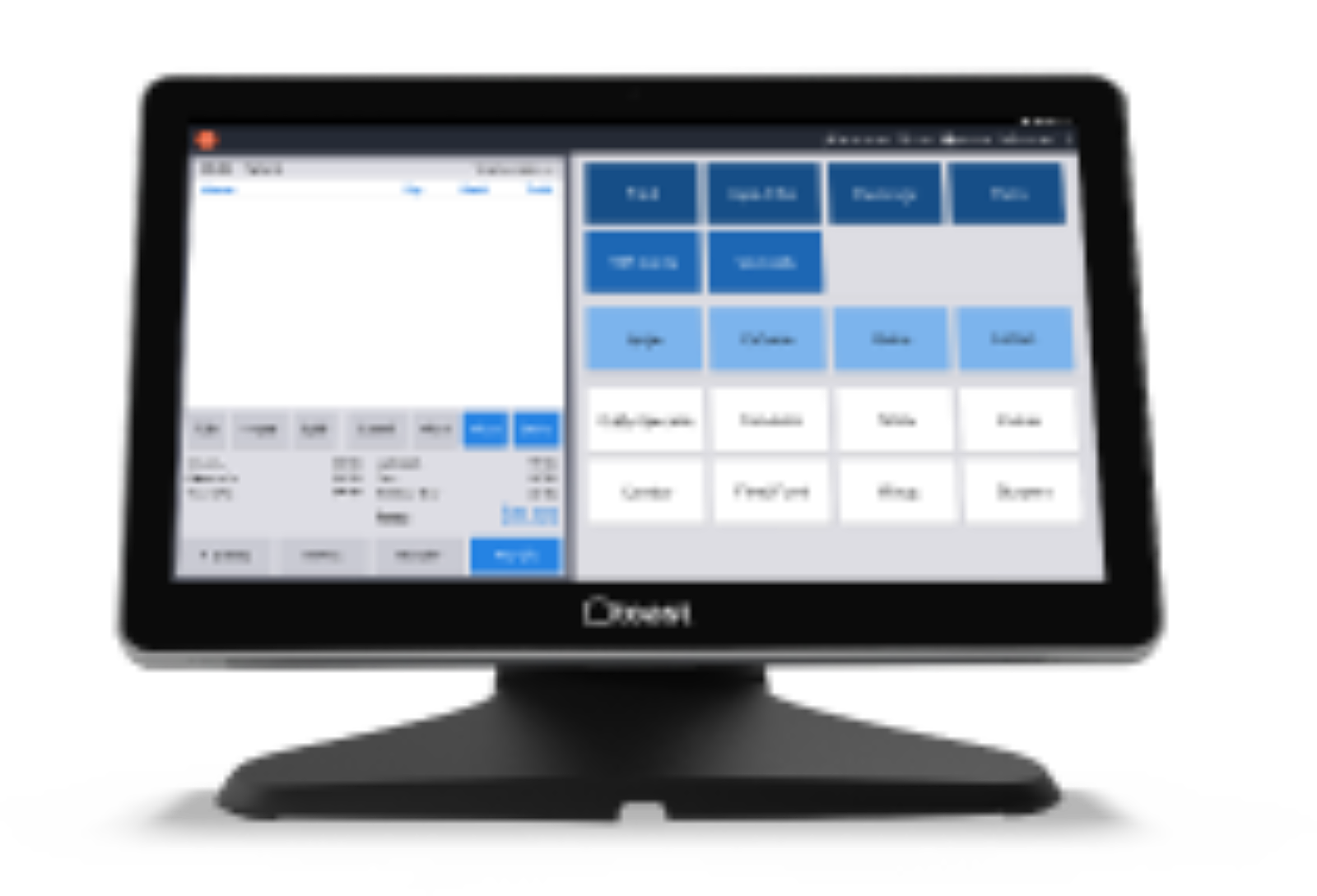
Is this article helpful?
DISCLAIMER: This information is provided for general informational purposes only, and publication does not constitute an endorsement. Toast does not warrant the accuracy or completeness of any information, text, graphics, links, or other items contained within this content. Toast does not guarantee you will achieve any specific results if you follow any advice herein. It may be advisable for you to consult with a professional such as a lawyer, accountant, or business advisor for advice specific to your situation.
Read More
Subscribe to On the Line
Sign up to get industry intel, advice, tools, and honest takes from real people tackling their restaurants’ greatest challenges.


